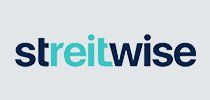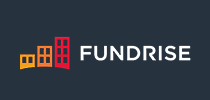Real estate can be a great investment if you take the time to educate yourself about the process and the best ways to get great returns. However, most people who are interested in buying rental properties or real estate as an investment never do so. People who don’t take the time to learn about investing in rental properties are missing out on a great opportunity. I own 11 rental properties that bring in approximately $5,000 a month in cash flow after all my expenses, including mortgage payments.
One thing I would have done differently is investing in real estate much sooner. I bought my first rental property when I was 31 and I am now 35. The great thing about rentals is the longer you own them, the better investment they become. Plus, when you are young you have more flexibility in life, fewer commitments, and can take more risk. If you wait too long to start investing, family, work, and life make it hard to learn about and buy rental properties.
What’s Ahead:
- Why rental properties are a great investment
- Buying rental properties with little money down is easier when you are younger
- You can invest in real estate without buying property
- It takes time to get a great deal on rental properties that cash flow
- The risks involved with buying rental property
- Conclusion
Why rental properties are a great investment
I love comparing rental properties to the stock market, because the stock market is the investment vehicle we are all taught to use. Whether it is individual stocks, mutual funds, index funds, or REITs, we are told the best way to save and invest is to put our money in the market. The problem with investing in the stock market is we are depending solely on stocks to increase in value. Retirement calculators are based on the stock market. They make us guess when we will die to determine how much we should save. We run out of money if we live too long or save too much money if we die to soon.
Some people invest in real estate for appreciation, but smart investors invest for cash flow.
Cash flow and real estate investing
Cash flow is the money you make from rental properties every month after all expenses are paid. The great thing about cash flow is it increases over time without ever eating away at your principal investment. It is like a stock where the dividend is so high that you never have to worry about the stock increasing in value to make great returns.
Cash flow will also increase over time because rents will go up with inflation while your mortgage payments stay the same. Eventually, you will pay off your loan and your cash flow will increase significantly.
On my rentals, I am seeing 20% cash on cash returns, which is not always easy to do, but possible depending on your location and amount of money you have to invest. Those returns do not include the tax advantages of rentals, equity pay down and possible appreciation which all increase your ROI. Here is a great article on how to calculate cash flow properly.
One way to make money on rental properties is to invest using sites like Roofstock. Roofstock is an online marketplace for real estate investing that charges half of the fees of traditional agents. The site makes it ridiculously easy to filter and search for properties in your price range.
Buying rental properties with little money down is easier when you are younger
Most banks will require an investor to put at least 20% down on a rental property.
That is a lot of money to most people, especially when you consider a property may need repairs, you have to pay closing costs and you want to have money in reserve in case something goes wrong. It can easily take 30% or more of the purchase price in cash to comfortably purchase a rental property.
If you buy a home as an owner occupant you can put no money down with certain loans (USDA, VA) and almost certainly buy a home with 5% down. You can’t rent out a home that you buy as an owner occupant right away, but you can rent it out after you have lived in the home a certain amount of time (usually one year).
There are some things to know about buying a multi-family property that you plan to live in. Most lenders require an owner occupant to live in a house for 12 months to satisfy the owner-occupancy requirement. That means you can buy a rental property as an owner-occupant, live there for 12 months and then rent the home out. If you are ambitious you can keep repeating this process every year although you will most likely only be able to use the no money down option once.
You can also buy a multifamily property that is between one and four units and live in one of the units to qualify as an owner occupant. After you have lived in the unit for 12 months, you can rent out the entire building and repeat the process.
When you are younger, it is much easier to move into a house that you want to make a rental property. When you have a family it is tough convincing your spouse and kids that you need to move every year and into a house that may not be up to their standards.
You can invest in real estate without buying property
One of the easiest ways to enter the real estate market is to do so as an investor. Today, there are many platforms that crowdsource the investment process. These platforms choose a group of expertly-vetted properties and have investors contribute to a collective pool, with each investor sharing in the reward.
You don’t have to be an accredited investor with Fundrise, and you can get started on real estate investing with only $500. Once you reach the $1,000 threshold, you can upgrade to a core plan to increase your returns. Fundrise loans money to commercial real estate buyers, then bundles those loans, offering them as investments through its platform.
 DiversyFund is yet another investing platform that allows you to invest in real estate without purchasing a property. The company offers investment funds of private market assets including real estate, and investors can start with as little as $500. They also feature zero management fees and a commitment to helping investors of all income levels grow their wealth, making it a great option for investors in their twenties.
DiversyFund is yet another investing platform that allows you to invest in real estate without purchasing a property. The company offers investment funds of private market assets including real estate, and investors can start with as little as $500. They also feature zero management fees and a commitment to helping investors of all income levels grow their wealth, making it a great option for investors in their twenties.
CrowdStreet has two major options for real estate investors: choose and manage your own portfolio or let their team of real estate investment experts do the work for you. Either way, you join other investors in funding commercial real estate projects, each of which is carefully vetted by market experts. Minimum investment requirements vary from one project to the next, but you can choose the opportunities that best fit your finances.
Streitwise is another excellent starter real estate investment opportunity. There’s only a $5,000 minimum for private real estate investments, and its most recent dividend was 8.4%. Note that Streitwise isn’t a crowdsourcing platform. Instead, you’re individually investing in a real estate investment trust (REIT), which operates similarly to a mutual fund by grouping investments together and having investors buy-in. What sets Streitwise apart is that it allows you to fund your investment using cryptocurrencies like Bitcoin and Ethereum. Once you’ve signed up on the website, you can download the app to use on your iOS devices
is another excellent starter real estate investment opportunity. There’s only a $5,000 minimum for private real estate investments, and its most recent dividend was 8.4%. Note that Streitwise isn’t a crowdsourcing platform. Instead, you’re individually investing in a real estate investment trust (REIT), which operates similarly to a mutual fund by grouping investments together and having investors buy-in. What sets Streitwise apart is that it allows you to fund your investment using cryptocurrencies like Bitcoin and Ethereum. Once you’ve signed up on the website, you can download the app to use on your iOS devices
It takes time to get a great deal on rental properties that cash flow
It is not easy to find rental properties that will generate the returns I get, but I am not an aberration either. Many investors get higher returns than I do, but they have put in a lot of time and effort learning their market, learning about real estate, and learning about rental properties. The older you get, the less time you have with more job commitments, more family commitments, and more hobbies you discover. There is less time to learn about real estate, your market, and how to make money in this business the older you get (unless you get to retirement age).
I also fix and flip about 10-15 homes every year so I specialize in getting great deals on real estate. I buy most of my deals off the MLS even with rising prices and a lot of competition.
Here are a few tips on getting great deals:
- I am a real estate agent, which helps me get great deals and lets me act very fast. I am not saying all investors should be agents, but it sure helps!
- If you aren’t an agent spend a lot of time finding a great agent that will act fast for you and find you deals.
- Spend time researching prices in your market and rental rates so you know what a good deal is.
- Do not depend solely on a real estate agent to find you good deals. Many agents are not investors and won’t know what you are looking for.
- Join a real estate investing club in your area to meet other investors and learn what they are buying and how.
The risks involved with buying rental property
There are definitely some risks and work involved with owning rental properties. The biggest mistake I see investors make is buying for appreciation with negative cash flow. It is great if my houses appreciates, but I love the cash flow. With cash flow, I have money in my pocket that I can use to buy more properties, invest somewhere else, or spend on something fun. If you have negative cash flow, there is a great chance things will end badly for the investor.
The problem with negative cash flow is most investors underestimate the money they will have to spend on their rental properties. There is also no guarantee prices will rise or when they will rise. Given enough time real estate will probably appreciate, but it could also go down in value before that happens. How long can you continue to pay money into a property every month? Eventually, people run out of money and are forced to sell, sometimes for less than they bought a property for. If you have positive cash flow, you won’t have to sell and you won’t want to sell, because it is putting money in your pocket.
Another issue that people forget about is maintenance. You have to budget for maintenance items every month. I figure 10% to 20% of my monthly rents will go to maintenance, depending on the age and condition of a property. If you don’t account for maintenance you may not make any money on your rentals.
On my rentals my average mortgage payments range from $400 to $600 including taxes and insurance and my rents range from $1,100 to $1,500 a month. After accounting for possible maintenance and vacancies my cash flow is about $500 a month.
It takes time to manage a rental property as well. You will have to find tenants, create a lease, account for expenses and income properly and make sure everyone pays on time. You could also hire a property manager to do all this for you for about 8% to 10% of the monthly rents, but you have to budget for that expense as well.
Conclusion
Rental properties can be an awesome investment that allows you to retire early. It is not a get rich quick scheme and it is not easy to do. Real estate investing takes time, flexibility, and ambition to make it work well. The sooner you get started, the easier it will be and the better off you will be later in life.




